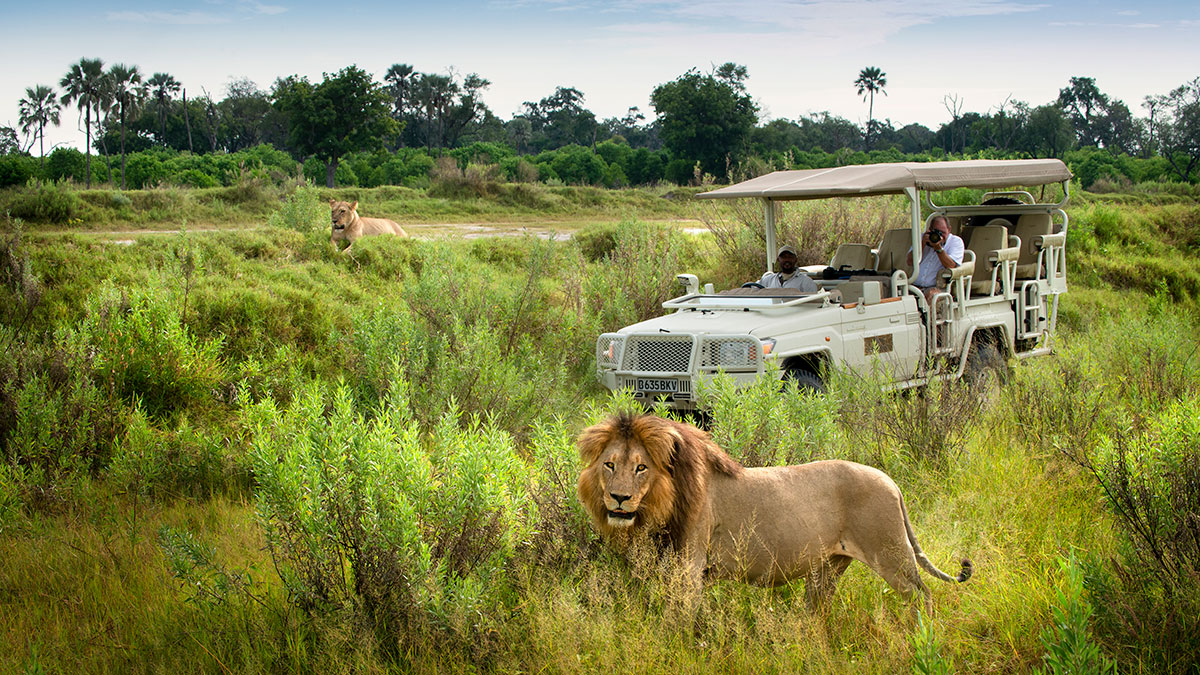An African safari is a bucket-list experience, but that doesn’t mean it’s a one-and-done kind of adventure. And while days on safari may be filled with game drives and spectacular wildlife sightings, there’s so much more to see than what’s darting across the horizon.
African safaris are captivating, memorable, and meaningful. One thing they’re not: predictable. Travelers can witness the Great Migration in Tanzania or trek through Rwanda’s rain forests in search of gorillas. They can meet Kenya’s Maasai warriors or watch artists at work in their Cape Town studios. Outfitters such as African Travel, the longest-established U.S. luxury safari operator, work with Virtuoso travel advisors and travelers to create seamless custom itineraries that fit individual preferences, styles, and budgets.
“We invite travelers to explore Africa’s rhythms and have more-intimate experiences beyond the expected,” says Sherwin Banda, president of African Travel. “Travelers can join drumming sessions, gain insight through township excursions, meet anti-poaching or all-women guiding teams, enjoy low-impact ocean safaris, or be a researcher for a day.”
As you consider your first (or next) safari, here’s what to learn – and unlearn – before you go.
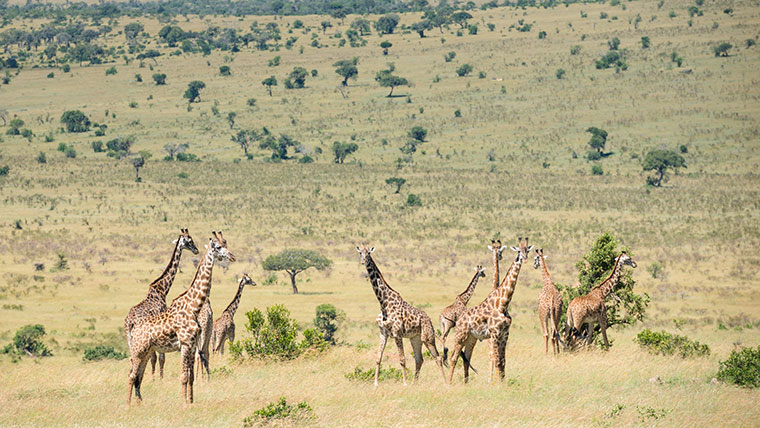
Serengeti sightings.
Myth: You can only go on safari during a specific time of year.
When it comes to the classic safari experience, most travelers think of the Great Migration, the dry period between June and October when more than a million wildebeests, gazelles, and zebras cross Tanzania’s Serengeti plains and head north to Kenya’s Maasai Mara. It’s a beautiful sight, but it’s not the only opportunity to witness wildlife en masse. Few travelers realize that they can also witness the Great Migration when wildlife return to the Serengeti between November and May – spy the cyclical phenomenon on African Travel’s 12-day Kenya and Tanzania safari.
And while the floodwaters of Botswana’s Okavango Delta – another classic safari destination – brim with wildlife during the April-through-September high season, November through March actually sees the second-largest migration of mammals in Makgadikgadi Pans National Park. The stop is a highlight on an 11-day South Africa-to-Botswana safari.
Kenya and Tanzania’s green seasons, when the skies open and deluge the plains below, take place in March, April, May, November, and early December. Travel during these times allows for uncrowded game viewing, vibrant green plains, and low-season rates. “Africa never has an off season,” says Virtuoso travel advisor Lydia Alvita. “The continent is always alive, and in these green seasons, you may even get to see more baby animals.”
Story continues below advertisement
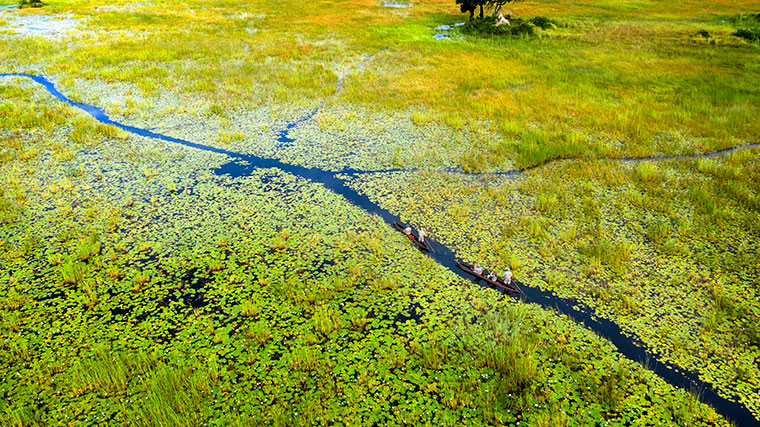
On safari via mokoro (canoe), a popular way to explore the Okavango Delta’s wetlands.
Myth: Safaris are a once-in-a-lifetime vacation.
While a safari – which means “sojourn” in Swahili – is indeed a lasting adventure, one trip can’t fully capture the entire continent’s vast wildlife population, landscapes, and cultures. “If you only went to Africa once, you’d miss out on so many wonders,” Alvita says. Witnessing the Great Migration is different than gorilla-trekking through Volcanoes National Park in Rwanda, for example, or searching for desert rhinos in Namibia’s remote Kaokoland region.
First-timers might opt for a ten-day South Africa and Victoria Falls safari, which includes visits to South Africa’s Cape Town, the Cape Winelands, and Kruger National Park, as well as Victoria Falls and its rain forests in Zambia. But on a return trip to Africa, they might head to Botswana, which promises a completely new set of landscapes. “Botswana offers an unmatched safari experience,” Banda says, “from the Okavango Delta’s thriving waterways to the Kalahari Desert’s meerkats and Chobe National Park, where elephants reign.”
Myth: Safaris aren’t safe and inclusive for everyone.
Traveling to Africa, where homosexuality is banned in many countries, may give some LGBTQ+ travelers pause, but it’s important to know that in a growing number of nations, gender identity and preferences are protected under anti-discrimination laws and same-sex marriage is legal. “South Africa was actually the first country to make same-sex marriage a constitutional right,” Alvita says. “Botswana, Mozambique, the Seychelles, and many others followed not long after.”
African Travel’s experts work with Virtuoso advisors to plan custom safaris that ensure welcoming and safe experiences for all travelers, regardless of their age, sexual orientation, or race. Families and couples can choose from a number of Pride Safaris, including a popular ten-day jaunt across South Africa, which combines a mix of culture, adventure, food, wine, wildlife, and romance, from Cape Town to the Shamwari Private Game Reserve.
“Lodges, camps, and hotels throughout Africa have been leading the way in hiring diversity and investing in communities,” Banda says. “Our goal is to take travelers into the heart of Africa, including those places that focus on inclusion and sensitivity.”
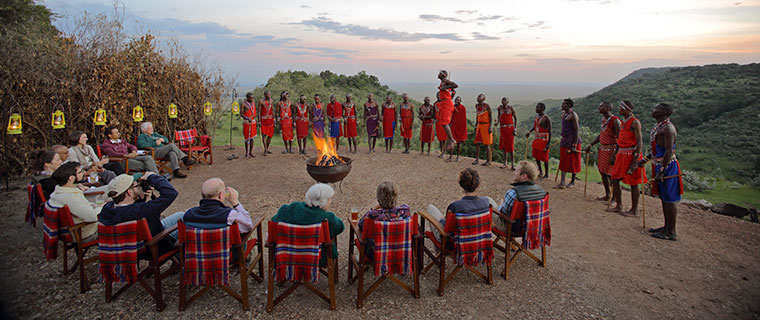
A moving meeting with the Maasai people while on safari in Kenya.
Myth: Safaris are only about the animals.
The thrill of watching a lion hunt for its prey near your four-wheel drive is hard to beat, of course, but great safaris also pack in enriching experiences beyond the plains. On a ten-day Namibia safari, for example, travelers meet and learn about the traditions of the Himba, one of the world’s last nomadic people. On an eight-day Kenya deep dive, they spend time with an all-women ranger unit in the foothills of Mount Kenya. And in South Africa, they can see Cape Malay influence come to life in Cape Town’s colorful Bo-Kaap district, experience the joys of a wildflower safari, and follow in Mandela’s footsteps in the KwaZulu-Natal province.
“I’ve arranged visits to schools and villages for travelers to gain an understanding of local life and culture,” says Virtuoso advisor Natalie Faggianelli.
We make travel dreams come true.
Whether you’re planning, going, or just dreaming (for now), we’re here for you.
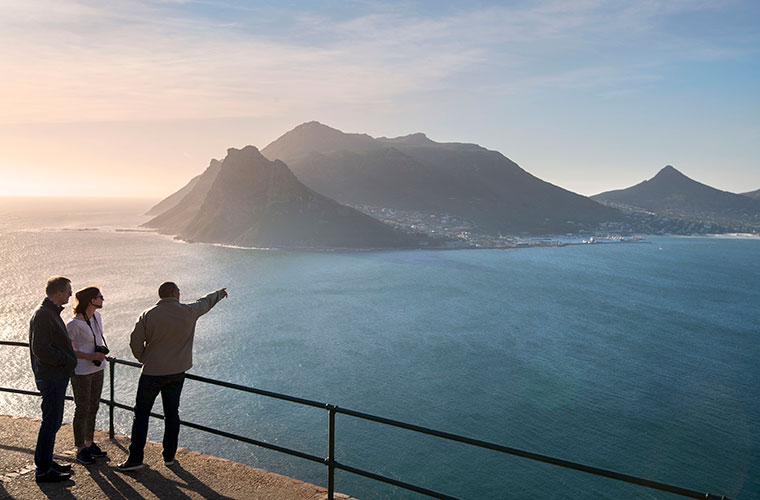
Many of African Travel’s South Africa journeys include time spent in cosmopolitan Cape Town.
Myth: Safaris don’t offer any time to see the rest of Africa.
“Africa’s cultures and people are just as impressive as the continent’s natural wonders,” Banda says. “Known as the Cradle of Humankind, the continent is a place where both the ancient and modern worlds exist in perfect harmony.”
This amalgamation is nowhere more evident than in Africa’s vibrant cities, which teem with history, character, and multicultural flair. Spending time in these urban environments is often part of African Travel’s safari itineraries, or it can be added as a pre- or post-safari experience. Travelers meet with Cape Town’s Ardmore artisans on an 11-day South African safari, take a private tour of the Luxor temple during a pre-safari stay in Cairo and on the Nile, or visit the moving Kigali Genocide Memorial in Kigali before heading into Rwanda’s national parks.
